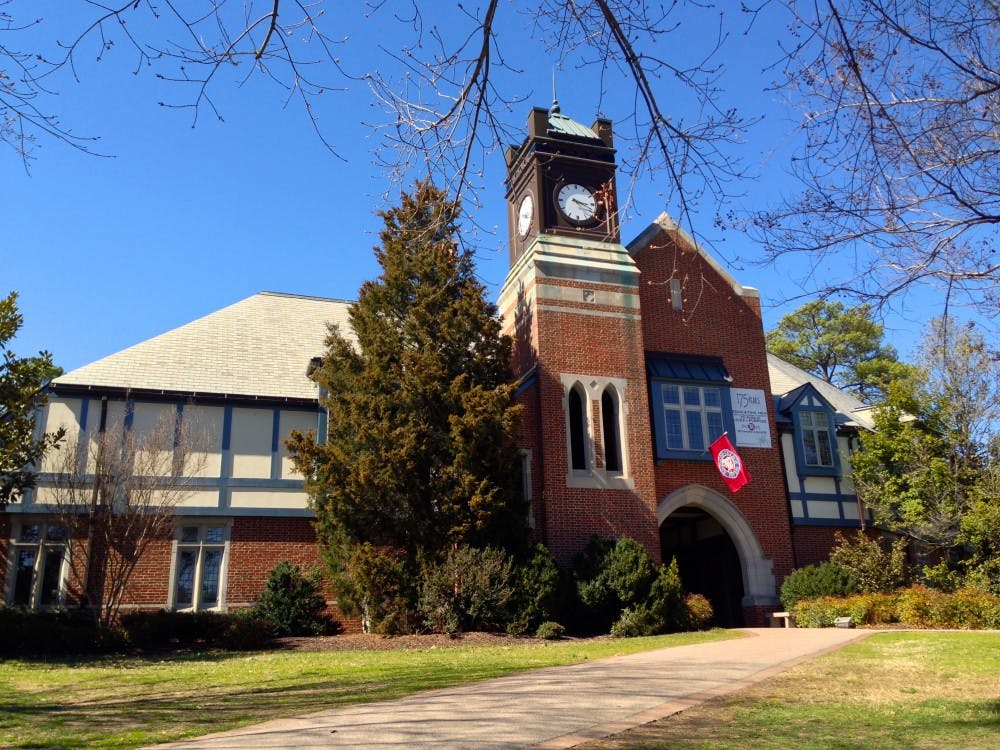The University of Richmond finalized plans for a gender-flexible housing option, to be offered in the fall of 2017, that will allow students to live with whom they feel most comfortable, regardless of gender, in any residential building on campus.
Students can choose to live together in groups of three or four regardless of biological sex, gender identity or gender expression if they apply and are selected for gender-flexible housing, according to a SpiderByte sent by Patrick Benner, director of residence life and undergraduate student housing, on Jan. 27.
Students will be assigned a housing lottery number and will follow the same process all students have in past years, according to the housing website.
Previously, many students on campus assumed that gender-flexible housing would be contained to a wing or hall of a specific dorm.
“When I first heard about the program, I thought all the people participating would be living together, like in a safe space,” Vince Camp, RC '19, said.
Instead, gender-flexible housing will spread across suites and apartments.
“You can imagine how someone who transitioned or identifies as something other than their birth gender might want a normal experience of housing, and not want to be sequestered with other trans or queer students," Glyn Hughes, director of Common Ground and one of the creators of gender-flexible housing, said. "But you can also imagine how somebody might want that.”
Hughes said he had been working on this program for three or four years with the help of many others such as Joe Boehman, dean of Richmond College, and Mia Genoni, dean of Westhampton College.
“We started a conversation where we looked systematically at a policy review, a scan of the university, for trans inclusion,” Hughes said. “A lot of people exist and identify outside of the binary. We wanted to have a policy that’s open to all students of all genders to get the housing that they need.”
Hughes said some of the biggest challenges the housing option had faced were logistical, such as how to deal with StarRez and Bannerweb. Another challenge was rewriting antiquated policies that had blocked gender-flexible housing in the past.
“[It's] a rubix cube," Hughes said. "You can get one color here, but you mess up the other colors. You have to get it all to line up.”
Students considering living in the gender-flexible housing, such as Adrianna Barranco, WC '18, see benefits and flaws in the way the program is designed.
Enjoy what you're reading?
Signup for our newsletter
“I think it would be really nice to have a community of either people who are genderqueer or who are comfortable living with people who are genderqueer,” Barranco said. “But I’m sure some people just want to be friends with people who are in the gender binary and don’t want to have an experience where they are just part of the queer community.”
Gender-flexible housing is about creating a living environment that students feel comfortable in, Hughes said.
“There are a wide range of identities for people for whom this is designed,” he said. “We have to build in sensitivity to individual needs, and that sensitivity resists policy definitions. We will do the best we can to have clear policies and flexibility.”
Those who wish to apply for gender-flexible housing must do so by Feb. 20, 2017 and are encouraged to meet with Genoni, Boehman or Hughes by Feb. 10 to discuss their needs and options. Students can apply here.
Contact contributor Caitlin Helsley at caitlin.helsley@richmond.edu
Support independent student media
You can make a tax-deductible donation by clicking the button below, which takes you to our secure PayPal account. The page is set up to receive contributions in whatever amount you designate. We look forward to using the money we raise to further our mission of providing honest and accurate information to students, faculty, staff, alumni and others in the general public.
Donate Now



